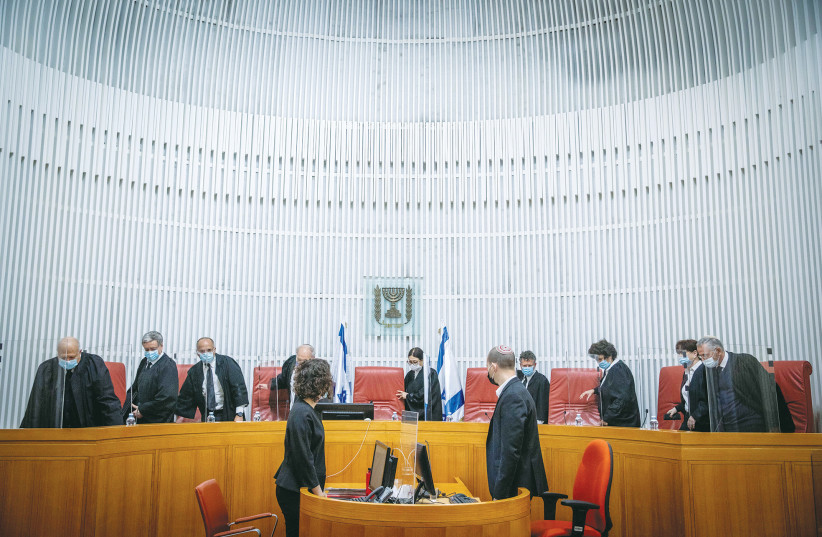The Israeli Prison Service (IPS) barred medical staff in jails across Israel from giving updates to families on the health condition of prisoners, two Israeli human rights organizations claimed in a petition heard by the High Court of Justice on Wednesday.
Physicians for Human Rights and HaMoked (The Center for the Defence of the Individual) noted in the petition that the IPS refused to release information on the health of security prisoners to their families, leaving them clueless regarding the well-being of their hospitalized family members.
High Court: State must update families, unless it's a security risk
The High Court, which held a hearing on the petition on Wednesday, rejected the state's notion that the family's right to know of a prisoner's condition should be subject to the nature of the prisoner's crimes.
In addition, the state further argued that other factors taken into consideration, such as security clearance for the information's release and their place of residence, should be taken into account when releasing the information to the family.
The Health Ministry must always release information on the condition of an imprisoned citizen as long as the information's release is not a security risk, the High Court ruled.

As per the High Court decision, the state now has 21 days to update the directive given to hospitals where security prisoners are hospitalized.
Adv. Nadia Daqqa from the Center for the Defence of the Individual said, "Updating the families of prisoners about the medical condition of their loved one is a very basic thing that may be critical to the medical condition of the prisoner and his treatment. ...It is hoped that these things will be reflected in the instructions that will be passed on to the medical teams, and that prisoners will not be left alone and cut off from their families when dealing with medical problems."
IPS moves to restrict security prisoners since Ben-Gvir's arrival
The petition is the result of the latest in a host of moves taken by National Security Minister Itamar Ben-Gvir, who oversees the IPS, aimed at imposing severe restrictions on Palestinian prisoners jailed for involvement in terrorist attacks.
According to the national security ministry, Ben-Gvir's first visit to Nafha Prison, southern Israel, earlier in January was to "ensure that the conditions of the security prisoners will not be improved."
IPS transferred 70 security prisoners to other prisons in January, with Palestinian reports claiming dozens of prisoners were being held in solitary confinement in various prisons. The Jerusalem Post reported last week that these inmates include 11 inmates linked to the escape of six prisoners from Gilboa Prison in 2021.
The latest actions taken by the IPS last week prompted Qadri Abu Bakr, chairman of the Detainees and Ex-Detainees Affairs Commission, to declare that Ben-Gvir's plans could lead to a “general insurrection” in Israeli prisons.
Khaled Abu Toameh contributed to this report.
